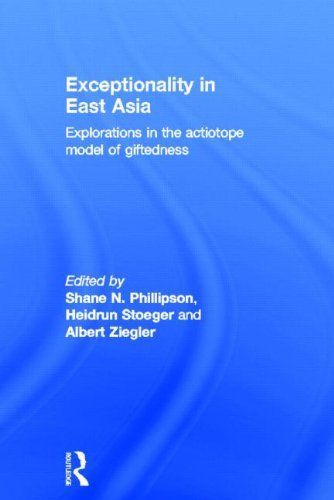
Exceptionality in East Asia Explorations in the Actiotope Model of Giftedness
The continual successes of students from East-Asia are confirmed in a variety of international tests of academic achievement and yet, despite this attainment, many scholars have realised that a substantial proportion of these students are also underachieving. Using the actiotope model of giftedness to integrate a broad range of research, this innovative book features a number of chapters written by internationally recognised scholars in a frank and lively discussion about the origins of exceptionality in students from East Asia. With the actiotope model as the theoretical framework, the book distinguishes between trait models of giftedness and systems approaches to exceptionality. Breaking new ground in understanding the complex interactions between a learner’s environment, goals, intelligence and motivations in the development of their ever-expanding knowledge and skill set, this book will: describe, with examples, a systems approach to the development of exceptionality, allowing educators and researchers the ability to track students with greater precision; influence the means by which educators identify and support students with the potential for exceptional performance; suggest possible reasons for the variability in the achievement of potentially gifted students; provide strategies to support these students; have a profound effect on the way that exceptionality and giftedness are defined and understood, not only in East Asia but also in the West. Covering issues that have firm theoretical foundations and which are based on cutting edge ideas, Exceptionality in East Asia has significant implications for gifted education and is essential reading for scholars, undergraduate and postgraduate students interested in the psychological and social basis of exceptionality.